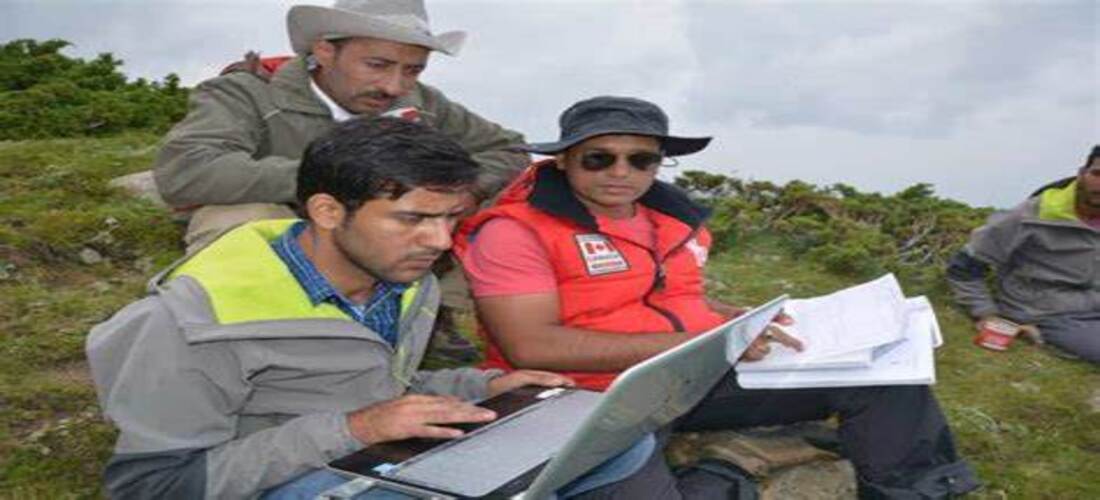As Jammu and Kashmir celebrates third anniversary of revocation of temporary special status granted under Article 370, not only seeds of development have started to sprout, but stone-pelting, terrorism and corruption has been almost eradicated by the tireless efforts of the government at the Center and J&K Governor.
When on August 5, 2019, Parliament of India took a bold decision to repeal Article 370, the detractors of the verdict raised a hullaballoo and threatened that it will lead to a bloodshed in Kashmir.
However, three years down the line those politicians and armchair experts, who had predicted a doom, if the Article 370 was revoked, have nothing to say in the defence of their theories now as the Union Territory is fast emerging as the hub of outside investment and development.
Silent majority in Jammu and Kashmir was in favour of revocation of Article 370 as it had only given them corrupt and dynastic politicians, but this Article is the creator of terrorism and separatism.
Though terrorists at the behest of Pakistan are still targeting innocent civilians, the relentless operations against terror eco-system by the police and security forces in the last three years has ensure that it is standing on its last legs.
The dynastic politics in Jammu and Kashmir has taken a back seat and politics of development is at the center-stage much to the delight of common man.
The so-called special status of the erstwhile state had been used by dynastic political families and their cheerleaders as a tool for not only looting public exchequer, but also was an impediment in implementing laws and hurdle for development projects as professionals and industrialists could not come here.
What was denied to people of Jammu and Kashmir for over 70 years is now being given to them. All flagship schemes of the Central government, including individual beneficiary centric schemes are being proactively implemented in the UT.
Ayushman Bharat Pradhan Mantri Jan Arogya Yojana (AB-PMJAY) SEHAT Scheme, which provides health insurance cover of Rs five lakh per family per year to all the residents of J&K at empanelled hospitals, has brought relief to lakhs of poor patients in the UT.
The revocation of Article 370 opened gates of development in J&K 1200 startups registered out of which more than 200 have been funded till now.
In adherence with PM’s infrastructure development vision, several new projects were approved and bottlenecks that marred the completion of existing projects were removed. To bring about ease of doing business, more than 130 administrative reforms have been undertaken by the central government.
Once finalized the investment can generate nearly two lakh jobs in the UT. However, keeping in view the fragility of Kashmir’s eco-system, J&K administration is not encouraging high-pollution industrial units like cement factories, brick kilns, steel and iron plants and stone crushing units.
Till 2019, due to lack of requisite checks and balances as well as accountability, J&K’s ecosystem of corruption had thrived unchecked for decades which had deprived the ordinary people of the benefits they rightly deserved. However, after 2019, a war has been launched against corruption in Jammu and Kashmir.
Sinha not only asserted that the culprits of the recruitment scam will be brought to the justice soon he also termed it as a first big step towards securing future of Kashmiri youth.
This raised hopes of thousands of educated youths in the system, who had only seen favoritism and nepotism throughout their lives by dynastic politicians. Merit was never a consideration in J&K till 2019 which had disillusioned the youth. However, now they find a messiah in LG Manoj Sinha, who under the Centre’s Prevention of Corruption Act, has given the anti-graft bodies sweeping powers to eradicate corruption in the UT.
The education sector has been another focus area of the LG administration. Seven new medical colleges have been initiated, four of which have already started functioning. From 500 MBBS seats in 2018-19 in medical colleges in Jammu and Kashmir, the government has increased it to 1100 in 2022.
The government has also achieved phenomenal success in its mission to turn the entire Himalayan region green and revive the dying water bodies. To begin with, the Jammu and Kashmir administration approached the Centre to seek amendments to the Indian Forest Act, 1927 to include the provision of booking forest smugglers under the stringent Public Safety Act (PSA). The UT administration has fixed a target of planting 1.5 crore saplings by the year end to carry forward the ‘Green Revolution’
Moreover, the government has taken several steps for all round development of Jammu and Kashmir including implementation of Prime Minister Development Package, 2015, flagship programmes, establishment of IIT (Indian Institute of Technology) and IIM (Indian Institute of Management), two new AIIMS (All India Institute of Medical Sciences) and fast tracking of infrastructure projects in roads, power, etc.
Due to Article 370, democracy could never percolate in Jammu and Kashmir and corruption reached to its zenith. Poverty grew while the rest of the country progressed. However, now with industries coming up and jobs for youths, the real benefits of repealing of Article 370 will be seen.
The historic decision of August 5, 2019 has set off a major political as well as social makeover of the region. It may take a few more years, before Jammu and Kashmir becomes a hub of development, but that day is not far when the region will be known for progress and prosperity than terrorism and stone-pelting.
Courtesy :- Majeed Ahmad

